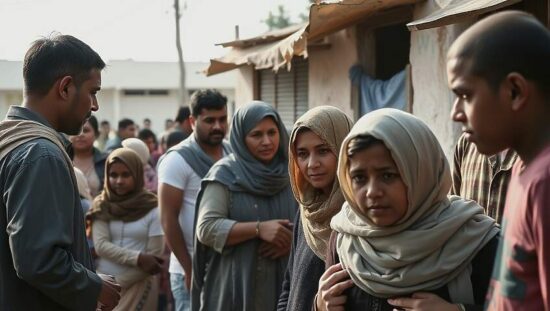A stark warning has been issued by UNICEF Executive Director Catherine Russell, highlighting the perilous consequences of shrinking development aid for vulnerable children worldwide. Russell cautioned that the agency anticipates a minimum 20% reduction in available funding for both humanitarian relief and long-term programs aimed at supporting children and families this year, a decline she described as profoundly damaging.
The potential repercussions are multifaceted, ranging from compromised vaccination rates and inadequate medical care to disrupted education, creating a breeding ground for further instability. Russell directly linked these cuts to heightened risks of conflict and crises within affected nations, ultimately underscoring the global implications of such short-sighted policies. “It destabilizes countries and increases the likelihood that they fall into conflict or crises. That ultimately affects all of us” she stated.
The current contraction in funding is partly attributable to shifts in political priorities. The closure of the US Agency for International Development (USAID) under the Trump administration, coupled with budget cuts enacted by the German government, represent significant blows to international development efforts. These actions stand in stark contrast to the commitment made by the UN General Assembly in 1970 to establish a benchmark – the “ODA quota” – requiring developed nations to allocate 0.7% of their Gross National Income (GNI) towards development assistance. This target was formally incorporated into the UN’s Sustainable Development Goals in 2015.
Germany’s adherence to the ODA quota currently stands at 0.67%, but a planned reduction is poised to further erode this commitment. Projections indicate a decline to 0.52% by 2026 and a further decrease to a concerning 0.43% by 2029. Critics argue that this dismantling of a long-standing global agreement represents a dangerous abandonment of responsibility, particularly at a time when humanitarian needs are dramatically increasing due to climate change, conflict and economic hardship. The long-term geopolitical and economic stability of both donor and recipient nations hangs in the balance as these cuts are implemented.





